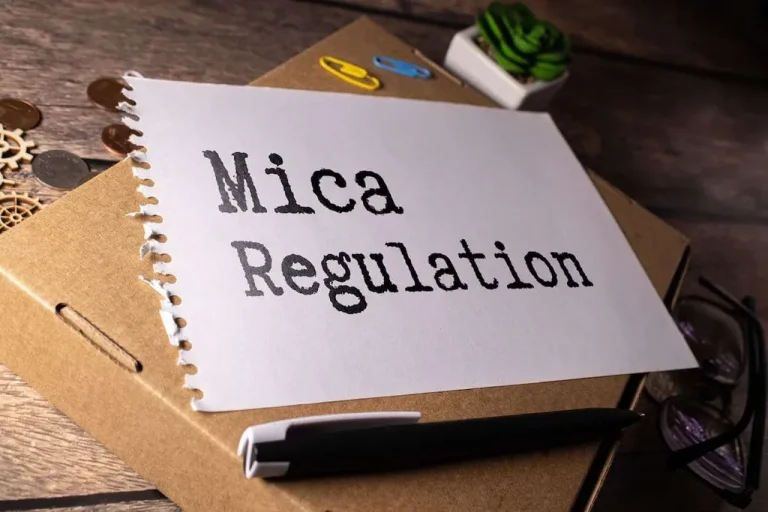Additional shaping the regulatory panorama for commodities are Self-Regulatory Organizations (SROs) such because the Nationwide Futures Association (NFA) and futures exchanges. These SROs set up and implement rules governing the conduct of their members, contributing to the integrity of the commodity futures and choices markets. Artificial assets are a sort of cryptocurrency that represents the value of real-world assets, similar to shares, commodities, or fiat currencies, inside the DeFi ecosystem. These assets are created using smart contracts and could be traded on decentralized exchanges. Stablecoins were created to minimize volatility and value fluctuations via pegging to a stable asset, such as a fiat foreign money like the US dollar, or a commodity like gold. The main goal of stablecoins is to offer the benefits of cryptocurrencies—such as safety, pace, and transparency—while avoiding the acute value swings which may be widespread within the cryptocurrency market.
The Howey Check: An Important Device For Classification
For instance, many exchanges, including Binance, have made vital efforts to demonstrate their dedication to legal requirements by actively working with regulation enforcement businesses to determine and remove dangerous actors from the market. Furthermore, while not usually required, robust retention policies such as sustaining comprehensive information of trading activity can also assist build goodwill with regulators. Crypto litigation guide for traders supplies valuable insights for understanding potential authorized challenges in the digital asset house. At Present, there’s a consideration by Congress to boost the CFTC’s authority, doubtlessly allowing it to control the spot trading of crypto tokens that aren’t categorized as securities.
Crypto regulation is in sharp focus as Coinbase and sixty five blockchain-related organizations intensify pressure on U.S. lawmakers. Ahead of “Crypto Week” beginning July 14, these teams urge swift passage of the CLARITY Act. They argue that the us should transfer decisively on crypto regulation to maintain its edge in international digital finance.
However, the CFTC’s jurisdiction does not lengthen to thorough transaction oversight, focusing primarily on policing fraudulent and manipulative activities. The SEC sees cryptocurrencies as securities, necessitating regulatory compliance, whereas the CFTC classifies them as commodities, focusing on market fairness. This distinction impacts regulatory frameworks and efforts are ongoing to clarify the oversight of both agencies. The Act introduces the term “restricted digital asset,” referring to tokens that have trading limitations or are nonetheless of their initial distribution stage. The specific particulars of this time period, and associated definitions, will be clarified further by way of joint rulemaking by the SEC and CFTC within 30 days after the Act becomes law.
Software To Initial Coin Choices

These authorized specialists are vocal of their name for the SEC to provide clearer guidelines and rules to assist the cryptocurrency industry navigate the advanced securities legal guidelines panorama. As the regulatory framework continues to evolve, the views and advocacy of securities legal professionals shall be essential in shaping a balanced method that fosters development whereas ensuring investor protection. The Securities and Change Fee (SEC), with its deep-reaching influence into the crypto markets, serves as a stronghold for enforcing securities regulation, including the Securities Act and the Securities Trade Act. Beneath the stewardship of SEC Chair Gary Gensler, the agency has not only intensified enforcement actions however has additionally made it clear that cryptocurrency exchanges should register as securities trading https://www.xcritical.in/ platforms to reinforce investor safety. The expansion of the SEC’s Crypto Property and Cyber Unit indicators a clear intention to tighten the regulatory noose around the necks of crypto firms. For years, digital assets operated in a legal gray space, a frontier where innovation outpaced the attain of regulators and regulation enforcement.

Secondary gross sales of “digital commodities” by persons apart from an issuer, agent, or underwriter aren’t traditional securities transactions. It isn’t clear yet whether cryptocurrency should still be a promising financial technology of the long run or whether it’s destined to be a haven for scammers and fraudsters who threaten to detract from the activities of respectable buyers. What is obvious is that there is the potential for investors to generate income in the digital foreign money world and indeed to revolutionize enterprise and different features of everyday life with the technology. The CLARITY Act aims to determine a functional framework for how the Commodity Futures Trading Commission (CFTC) and Securities and Trade Fee (SEC) oversee digital property List of cryptocurrencies. Coinbase and its companions imagine the shortage of such a structure restricts innovation and delays institutional involvement. Due To This Fact, the bill prioritizes jurisdictional clarity and regulatory requirements that apply across the crypto ecosystem.

The impact this ruling could have on crypto commodities, which are mainly cryptocurrencies, remains unclear. Some cryptocurrencies are classified Commodity vs Security Why It Matters For Crypto as commodities in certain nations, including the Usa. In distinction, a “crypto commodity” is a unique sort of asset than a standard cryptocurrency.
That’s the strategy largely taken by the European Union, the place the Markets in Crypto Assets (MiCA) regulation sets out the steps to be adopted by crypto issuers, pockets suppliers and exchanges to protect shoppers and ensure fair buying and selling. If a cryptocurrency is a security, cryptocurrency issuers and exchanges should seek the required licenses from their securities regulators. This is usually pretty tough to do, so the crypto industry spends an enormous amount of effort trying to ensure that cryptocurrency sales and developments keep away from securities laws. The classification of cryptocurrencies additionally influences market dynamics and investor conduct. When a digital asset is labeled a safety, it might experience increased scrutiny and volatility, as regulatory news can significantly influence prices. Traders typically react to regulatory developments by adjusting their portfolios, which can result in sharp worth movements and market fluctuations.
CLARITY additionally does not prohibit general solicitation, further broadening the exemption’s reach. It may be argued that non-fungible tokens (NFTs) are securities, as many patrons believe over time, they’ll revenue from their purchases. For instance, Rep. Madison Cawthorn (R-N.C.) lately filed such a report, albeit late, for purchases and sales of a “meme-coin” cryptocurrency. By submitting the stories, Cawthorn presumably concedes that the cryptocurrency is a kind of other security required to be reported underneath the STOCK Act. Advocates and attorneys parsing the RFIA will also need to perceive the contours of these ethics laws before they step into the fray as a result of these guidelines are the ones that govern a federal official’s personal wallet. A fast dive into the evolutionary history of cryptocurrency platforms is warranted to grasp the idea of crypto commodities.
- However their classification and regulatory framework have important implications, especially in the realm of cryptocurrencies.
- There are also further state-by-state guidelines and rules that cryptocurrencies can run afoul of, such as the go well with towards KuCoin by the Big Apple Attorney Common or multiple states’ regulators teaming as much as goal a coin featuring Elon Musk’s image.
- Commodities, then again, are bodily goods which are traded on exchanges in wholesale quantities.
- Laws should also clarify that front-end interfaces and web applications offering user entry to DeFi providers must register with the SEC and FINRA as brokers.
This would mean the cryptocurrency should adhere to stringent disclosure and registration requirements, much like traditional securities like stocks or bonds. Initial coin choices (ICOs), for example, must be registered with the SEC, and issuers would wish to disclose comprehensive details about the corporate and the token sale. The classification of a cryptocurrency as a commodity or safety has far-reaching regulatory implications. Securities are topic to stringent rules aimed at protecting investors and sustaining market integrity. Regulatory our bodies often require disclosures, registration, and compliance with particular requirements. Commodities, nonetheless, may be subject to different sets of laws, often focusing more on buying and selling practices and market operations quite than investor protections.
As the regulatory tapestry for digital assets turns into more and more intricate, the Monetary Accounting Standards Board (FASB) has stepped in, mandating the measurement of sure crypto assets at truthful worth. New accounting standards that may come into impact after December 15, 2024, purpose to regulate entities’ retained earnings for a more accurate valuation of crypto assets. These regulatory advancements and reporting requirements contribute significantly to the clarity and assessment of worth and threat for investors, enhancing the rigor with which digital assets are scrutinized and understood. As the crypto industry navigates the complex terrain of securities legal guidelines, understanding the legal nuances turns into pivotal.





